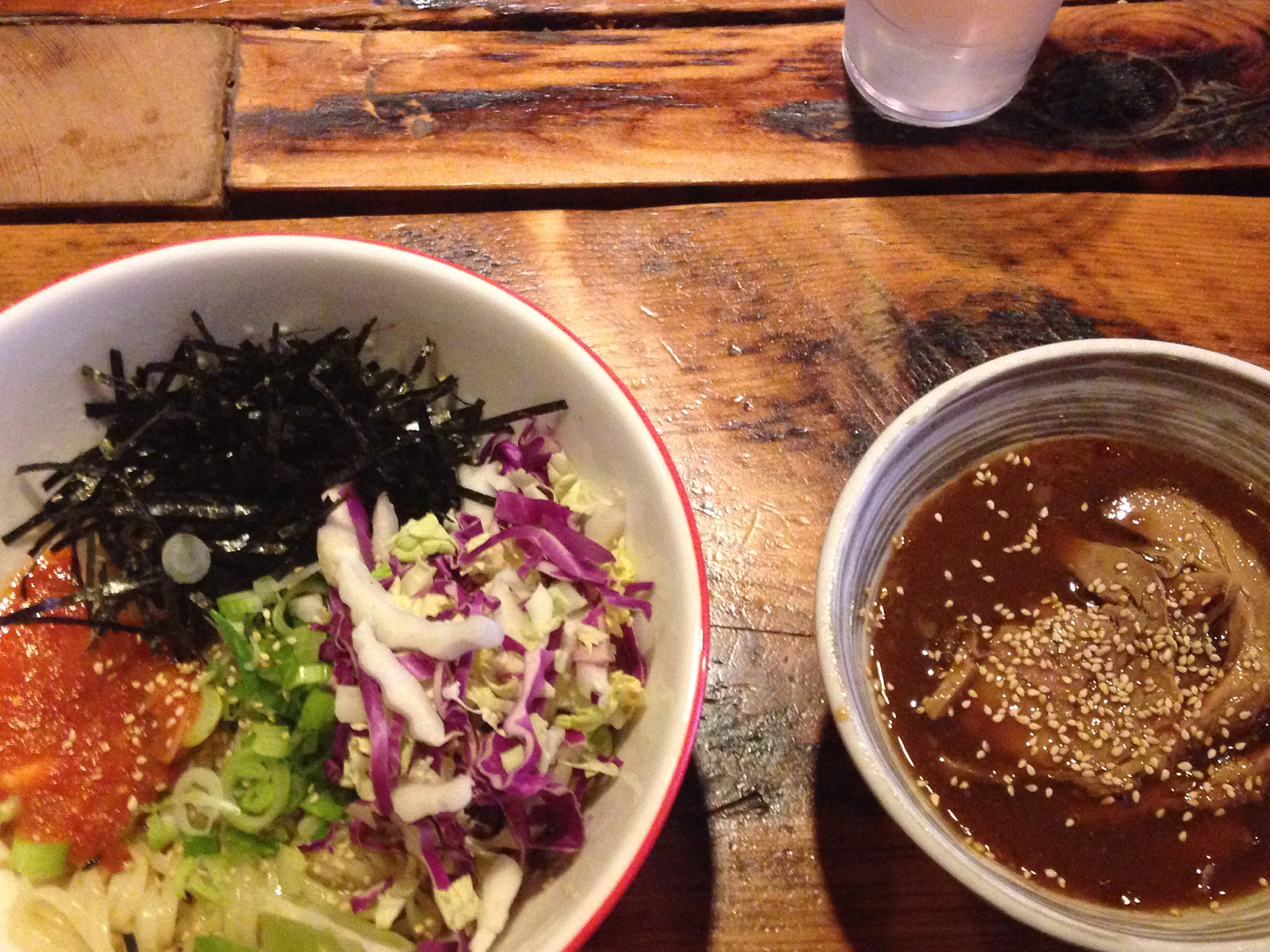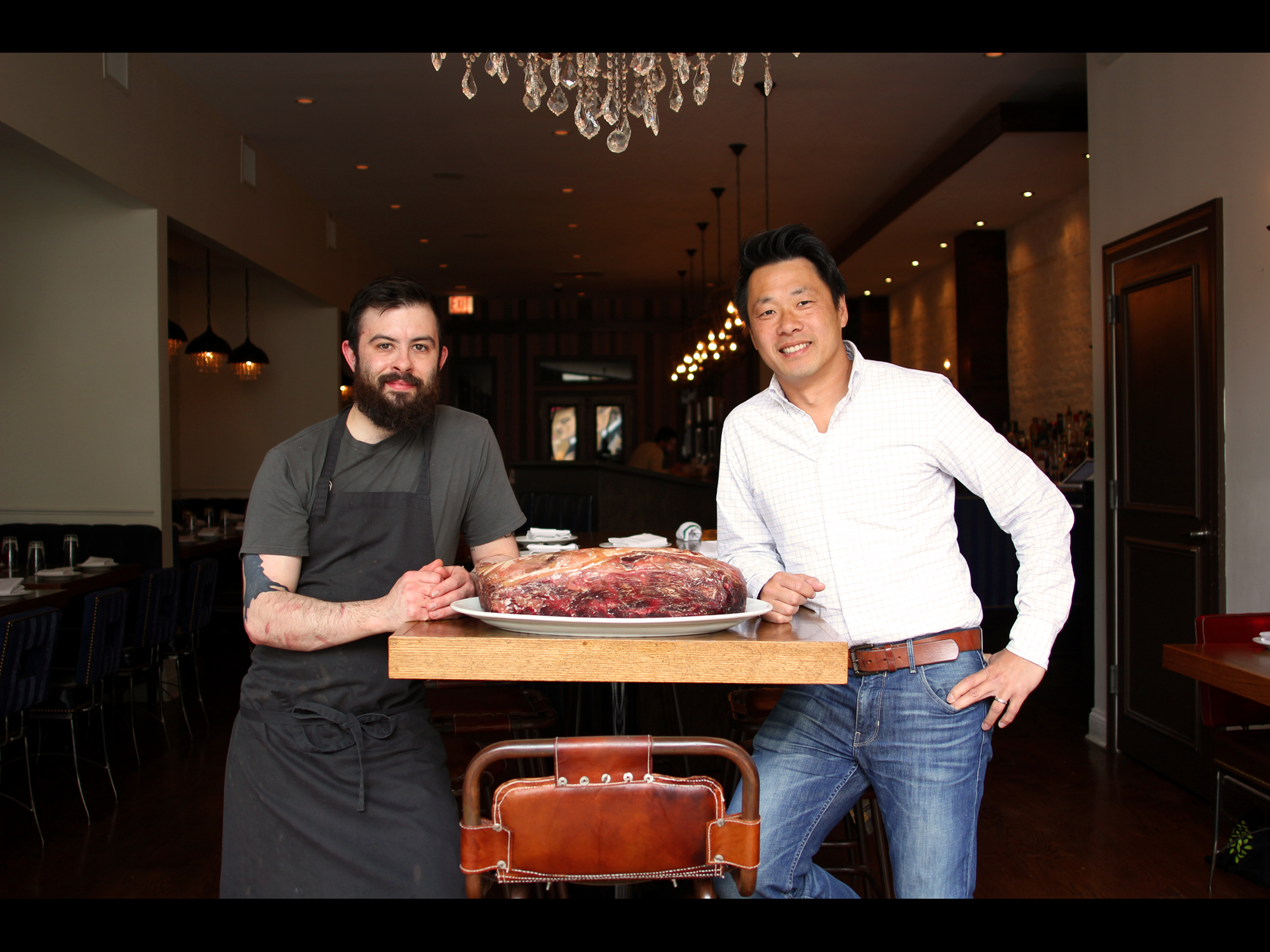A WHILE BACK I WROTE HOW THE TRIBUNE’S food section was being depleted of staff, and since I am the center of the universe, I’m sure that’s why they promptly went out and hired a bunch of good people, some of them my friends. The result is a department that has a lot of strengths and produces a lot of good coverage of different parts of our scene; there isn’t exactly a coherent strategy for it, it’s more like The Avengers, robot suit guy and Norse god on the same team, but you know, they’re all set for healthy growth and a good future putting out quality journalism…
Oh, who are we kidding? They’ll do great stuff but what happens to the Tribune is being decided so far above the realm of writers producing good work, it might as well be Norse gods fighting each other in Asgard. In that sense, although changing the name of the company to Tronc (Tribune Online Content) with the logo of a PBS station in the 70s is hilarious, it’s no more hilarious than the fact that things called Snapchat and Uber get investment dollars that once would have gone to Consolidated Bauxite. It’s what you do now; you communicate a vague, shimmery future to investors under a geeky kid’s idea of a name. “We’re OobFloob and we globally curate experiential…” Shut up and take my check, kid. How do you say no to that world and insist that you continue to call yourself something stuffy like Tribune Media? Don’t you want to be cool?
Some objected that it was gross that a journalism company was now calling themselves a content curation and monetization company. Well, monetizing content is what every journalistic enterprise always did, matching the type of content with the readers Marshall Field wanted to sell to, though journalism is often too high on its own self-importance to recognize that.
If you give what’s happening in the world of big finance an all-future-y name like Tronc, the old reporter guys at the bar at the Billy Goat are going to give a good guffaw over their Canadian Club with a splash of water.
Yet the way it’s phrased now sounds especially bloodless and totalitarian, a vast prison of faceless content curators pulling together meaningless articles no one wants to read so they can produce clicks. Clicks are the currency, and clicks are more easily gotten by tricks than by good journalism, so who needs the latter? If there’s nothing in your article that we can number and say it will SHOCK you, it’s valueless. We’ve convinced ourselves, and our advertisers, that being tricked into looking at something for a half a second is the equal of reading it and an advertising message, and who can be surprised that money flows to the easiest, most automated way of producing this autonomic response—not even in people, but in machines?
Yet at the same time that the business of producing content has become almost completely divorced from actual humans either writing or enjoying it, and writers are the cheapest of commodities, media companies are somehow the prizes over which great fortunes wage war. Tronc is just the latest example of how those two irreconcilable ideas—writers are worth nothing, content is the most valuable thing—can’t be made to logically go together.
To take something in the real world—newspaper writers, who go to school board meetings and talk to Uber drivers for comment and go try eight tacos a day for a month—and then try to scale it up into a content curation empire is to expose how either you’re in the writing about real stuff world, or you’re in the machines clicking on each other business, but they are not really two ends of the same thing. If you give what’s happening in the world of big finance an all-future-y name like Tronc, the old reporter guys at the bar at the Billy Goat are going to give a good guffaw over their Canadian Club with a splash of water.
Stuck in my ways, I choose to stay in the real world (well, I didn’t exactly choose to not be a billionaire financier rolling companies like dice, but I went with my own strengths), and to believe that eventually this period of madness has to lead to a way that, you know, readers and writers and money get together again. Like music, maybe it will never be as lucrative as it was, but there ought to be some models for the underlying businesses to make money, not just to play with money trading content enterprises among the crazy rich. And part of that to me is that you have to stand for something, as the Tribune and every newspaper stood for, and still stands for, certain things.
The great faceless curation nightmare is horrifying because it says there’s no order to the world at all—the brands don’t mean anything at all, the Stateville Intelligencer or NoozWhizzer, it’s all equal as long as it produces the clicks. You could be for more funding for education today, and for letting children run wild in the streets tomorrow, if the latter outperforms the former. That’s the world Tronc promises us, and we see it creep further into our own all the time, that’s how we got 14 reports from the scene of the Saved By the Bell popup the day it opened. I’m sure they all got good metrics. Meanwhile, one of the city’s last 1960s-era Japanese restaurants is closing, think they might have some stories to share with someone who stops by? Will anyone?
Unfuturistic as it is, some of us still want something to read with a person at the other end who has something interesting to say and a reasonably literate way of saying it. Can we find our way to reconstructing that civilization for a changed world, before it’s completely torn down?
Michael Gebert is content curator at Fooditor.
COVER IMAGE: The Chicago Tronc Center, by Joel Mann.
Latest
Join the Discussion
After you comment, click Post. If you're not already logged in you will be asked to log in or register with Disqus.






